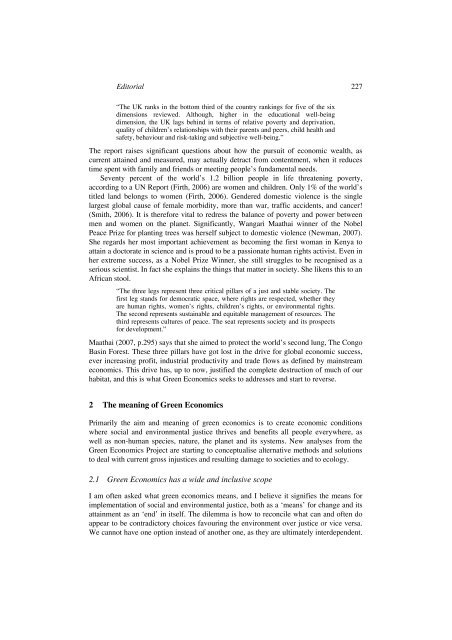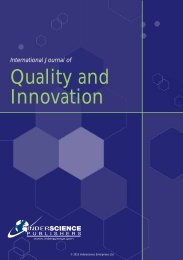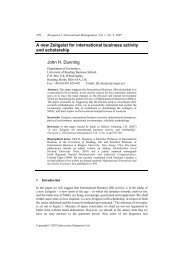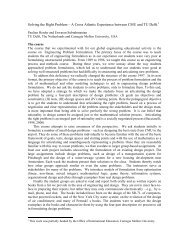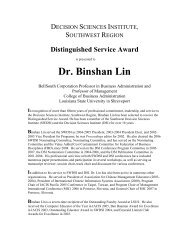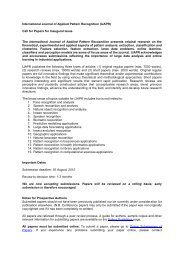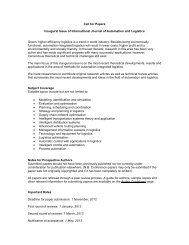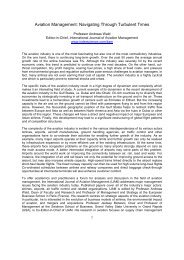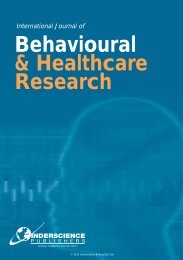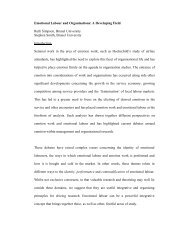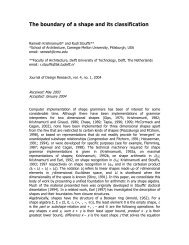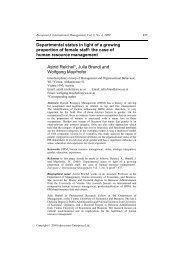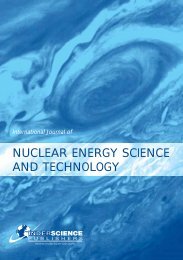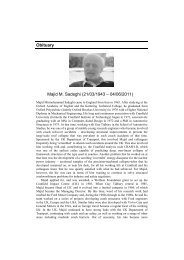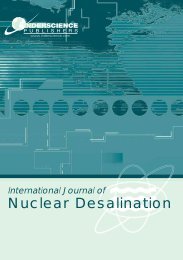Editorial: progress in Green Economics: ontology, concepts and ...
Editorial: progress in Green Economics: ontology, concepts and ...
Editorial: progress in Green Economics: ontology, concepts and ...
Create successful ePaper yourself
Turn your PDF publications into a flip-book with our unique Google optimized e-Paper software.
<strong>Editorial</strong> 227<br />
“The UK ranks <strong>in</strong> the bottom third of the country rank<strong>in</strong>gs for five of the six<br />
dimensions reviewed. Although, higher <strong>in</strong> the educational well-be<strong>in</strong>g<br />
dimension, the UK lags beh<strong>in</strong>d <strong>in</strong> terms of relative poverty <strong>and</strong> deprivation,<br />
quality of children’s relationships with their parents <strong>and</strong> peers, child health <strong>and</strong><br />
safety, behaviour <strong>and</strong> risk-tak<strong>in</strong>g <strong>and</strong> subjective well-be<strong>in</strong>g.”<br />
The report raises significant questions about how the pursuit of economic wealth, as<br />
current atta<strong>in</strong>ed <strong>and</strong> measured, may actually detract from contentment, when it reduces<br />
time spent with family <strong>and</strong> friends or meet<strong>in</strong>g people’s fundamental needs.<br />
Seventy percent of the world’s 1.2 billion people <strong>in</strong> life threaten<strong>in</strong>g poverty,<br />
accord<strong>in</strong>g to a UN Report (Firth, 2006) are women <strong>and</strong> children. Only 1% of the world’s<br />
titled l<strong>and</strong> belongs to women (Firth, 2006). Gendered domestic violence is the s<strong>in</strong>gle<br />
largest global cause of female morbidity, more than war, traffic accidents, <strong>and</strong> cancer!<br />
(Smith, 2006). It is therefore vital to redress the balance of poverty <strong>and</strong> power between<br />
men <strong>and</strong> women on the planet. Significantly, Wangari Maathai w<strong>in</strong>ner of the Nobel<br />
Peace Prize for plant<strong>in</strong>g trees was herself subject to domestic violence (Newman, 2007).<br />
She regards her most important achievement as becom<strong>in</strong>g the first woman <strong>in</strong> Kenya to<br />
atta<strong>in</strong> a doctorate <strong>in</strong> science <strong>and</strong> is proud to be a passionate human rights activist. Even <strong>in</strong><br />
her extreme success, as a Nobel Prize W<strong>in</strong>ner, she still struggles to be recognised as a<br />
serious scientist. In fact she expla<strong>in</strong>s the th<strong>in</strong>gs that matter <strong>in</strong> society. She likens this to an<br />
African stool.<br />
“The three legs represent three critical pillars of a just <strong>and</strong> stable society. The<br />
first leg st<strong>and</strong>s for democratic space, where rights are respected, whether they<br />
are human rights, women’s rights, children’s rights, or environmental rights.<br />
The second represents susta<strong>in</strong>able <strong>and</strong> equitable management of resources. The<br />
third represents cultures of peace. The seat represents society <strong>and</strong> its prospects<br />
for development.”<br />
Maathai (2007, p.295) says that she aimed to protect the world’s second lung, The Congo<br />
Bas<strong>in</strong> Forest. These three pillars have got lost <strong>in</strong> the drive for global economic success,<br />
ever <strong>in</strong>creas<strong>in</strong>g profit, <strong>in</strong>dustrial productivity <strong>and</strong> trade flows as def<strong>in</strong>ed by ma<strong>in</strong>stream<br />
economics. This drive has, up to now, justified the complete destruction of much of our<br />
habitat, <strong>and</strong> this is what <strong>Green</strong> <strong>Economics</strong> seeks to addresses <strong>and</strong> start to reverse.<br />
2 The mean<strong>in</strong>g of <strong>Green</strong> <strong>Economics</strong><br />
Primarily the aim <strong>and</strong> mean<strong>in</strong>g of green economics is to create economic conditions<br />
where social <strong>and</strong> environmental justice thrives <strong>and</strong> benefits all people everywhere, as<br />
well as non-human species, nature, the planet <strong>and</strong> its systems. New analyses from the<br />
<strong>Green</strong> <strong>Economics</strong> Project are start<strong>in</strong>g to conceptualise alternative methods <strong>and</strong> solutions<br />
to deal with current gross <strong>in</strong>justices <strong>and</strong> result<strong>in</strong>g damage to societies <strong>and</strong> to ecology.<br />
2.1 <strong>Green</strong> <strong>Economics</strong> has a wide <strong>and</strong> <strong>in</strong>clusive scope<br />
I am often asked what green economics means, <strong>and</strong> I believe it signifies the means for<br />
implementation of social <strong>and</strong> environmental justice, both as a ‘means’ for change <strong>and</strong> its<br />
atta<strong>in</strong>ment as an ‘end’ <strong>in</strong> itself. The dilemma is how to reconcile what can <strong>and</strong> often do<br />
appear to be contradictory choices favour<strong>in</strong>g the environment over justice or vice versa.<br />
We cannot have one option <strong>in</strong>stead of another one, as they are ultimately <strong>in</strong>terdependent.


